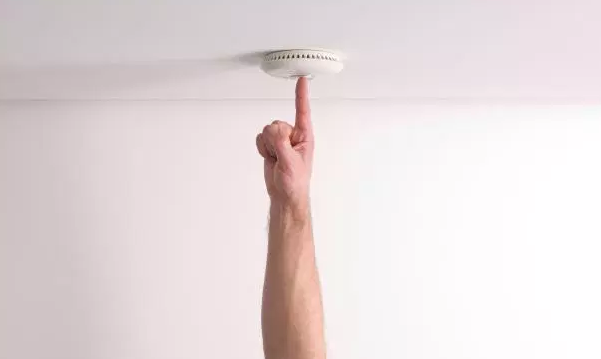Earlier this year the Scottish Government announced a relaxation to the smoke/heat alarm requirements for the Private Rented Sector.
Wireless alarms are now permitted – The main change being; “from 1 March 2019 the repairing standard can be complied with by either mains-operated alarms or tamper proof long-life lithium battery alarms”. According to the guidelines, smoke and heat alarms previously had to be hardwired but under the new guidance these can either be interlinked via a hardwired system or wirelessly (Alarms should conform to BS EN 14604 and heat alarms to BS 5446-2). This legislation has been changed in line with the Housing (Scotland) Act 2006 (Modification of the Repairing Standard) Regulations 2019 and the Housing (Scotland) Act 1987 (Tolerable Standard) (Extension of Criteria) Order 2019.
What if a property already has hardwired alarms? Hardwired alarms these can be left in place until the end of the manufacturer’s recommended lifespace. After this, the alarms can either be replaced with mains powered or interlinked wireless battery powered units. It’s fine for a combination of mains and wireless alarms to be installed, provided the are all interlinked.
A Lesser level of protection might be appropriate – according the the guidance; where the proximity of an open fireplace would make a detector impracticable or where the cost of installing detectors would be prohibitive (i.e. the cost of structural alterations necessary) a lesser level of protection might be appropriate. However our advice is to follow the repairing standard guidance that there should be at least;
- one smoke alarm in the living room
- one smoke alarm in every circulation space (i.e. hallways) on each storey
- one heat alarm in every kitchen
- HMO (House in multiple occupation) properties require a more stringent standard of fire detection
- Smoke and heat alarms should be regularly maintained and it’s good practice for tenants to test alarms on a weekly basis.
To choose wireless or hardwired? The price does not vary significantly between wireless alarms and hardwired alarms. With wireless alarms, any saving made on the installation (drilling, cabling and trunking) is balanced out by the cost of the more expensive wireless units. The advantage of wireless alarms is that they minimise any damage to ceilings or ornate cornicing however on replacing these alarms after a 10 year lifespan, it would cost more to replace these than hardwired alarms. At Umega Lettings the cost of fitting out a property with 3 alarms is £280+VAT for wired alarms and £290+VAT for wireless alarms.
